After being diagnosed with NAFLD aka non-alcoholic fatty liver (or simply Fatty Liver), some might be tempted to believe that since it’s not alcohol that caused your liver problems, you could still consume it moderately or socially.
In the end, what damage can a glass of wine, after dinner, cause? Well, as we’ll see – a lot!
In today’s article, we’re going to talk exactly about this: whether or not you should stop drinking alcohol after being diagnosed with a fatty liver disease.
You should stop drinking all types of alcohol if you have NAFLD. Since we’re talking about a liver that is already suffering, alcohol will do a lot of harm and put unneeded pressure on it, potentially making the disease worse.
I know that this is not the answer some of you were hoping to read – especially since some doctors say that you can have a drink or two every now and then. (But they are wrote)
Let’s find out more about this in today’s article so that you can make an educated decision regarding that next glass of wine or beer or any other type of alcoholic beverage that you maybe considered having.
You will see that I will go as far as saying that, once you get diagnosed, you will have to completely stop having any alcohol for the rest of your life, even after reversing your condition. This was and still is my approach, for example!
Why is alcohol bad for a fatty liver?
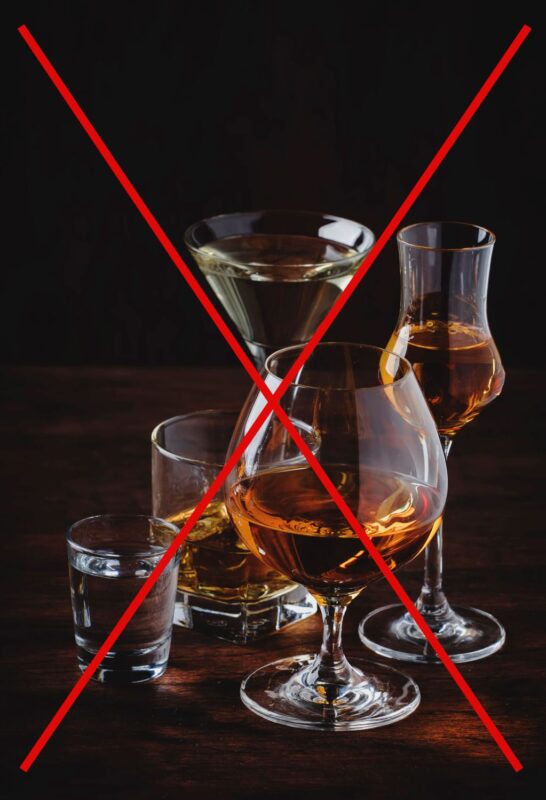
According to Drinkaware (among many, many other reputable sources), there are two main reasons why alcohol is bad for a fatty liver:
1. Additional liver stress: when the liver breaks down the alcohol, the chemical reaction damages its cells, leading to inflammation and scarring.
2. Alcohol also damages our intestine, allowing bacteria from our gut to enter the liver. The bacteria, which isn’t supposed to be there, will cause even more damage to one’s liver.
These are just direct effects. Indirectly, there are various other things that are just as bad. From the high carb intake that alcoholic drinks have to side effects (like having us eat a large, potentially unhealthy meal…) there are plenty of things to be aware of.
In other words, alcohol is indeed really unhealthy, even for those who are not already suffering from a fatty liver disease.
But a healthy liver can handle a bit of pressure as long as you drink moderately and just every now and then. However, a person suffering from fatty liver doesn’t need the extra stress and damage.
In this case, alcohol will at best delay the healing of our liver, but it might actually do a lot more damage, because the liver is already in a poor shape and unable to properly handle the bad effects alcohol consumption has on it.
This means that no alcohol is permitted if you have a fatty level, and even if your diagnosis is “non alcoholic fatty liver”.
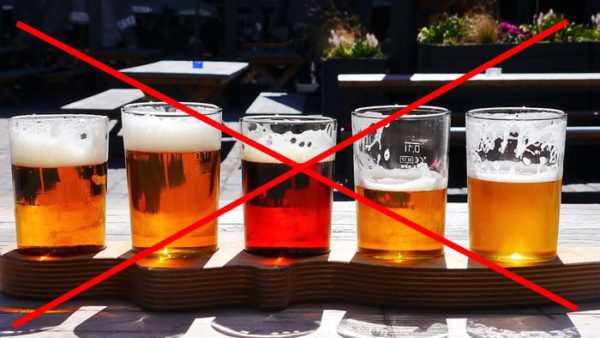
This includes beer, wine and any other type of beverage that has even small percentages of alcohol included – as well as those strong drinks, for sure.
I went a bit more in depth with two of the main drinks that people usually consume, so if you want the nitty-gritty about them, make sure to do some further reading: why you shouldn’t drink beer, and why you shouldn’t drink wine if you have been diagnosed with a fatty liver.
Not even a single sip? Is that even possible?
I have to tell you that, even though I wasn’t really a big drinker before being diagnosed, I was shocked when I found out that I would not be allowed to drink any alcohol, ever, if I wanted to reverse my NAFLD.
I was actually 100% certain that I will not be able to have any fun when going out, that my social life will have to suffer a lot and that I will feel mostly miserable knowing that I can never ever have a drink.
Well, guess what? None of my worries proved to be correct. I stopped drinking alcohol as soon as I learned that I shouldn’t have it anymore and I haven’t touched it since.
Remember: I’ve been diagnosed in late 2014 and I have reversed it since. So it’s definitely doable – I’m not the only one who managed to!
And the biggest surprise for me was that it wasn’t that difficult to achieve, although I had some tough moments along the way. The best part is that the longer you do it, the easier it is for you to stop wanting to take a sip.
Some of my friends had trouble understanding that I will never EVER drink alcohol because of my fatty liver (even after reversing it) and they still try to convince me to drink “at least one beer” as it “won’t do any harm”.
It was difficult for me to accept what I’m about to say, but it is true: those are not real friends. Real friends are supportive and help you get past the most difficult moments in your life, not make it more difficult.
And since alcohol is known to be bad for one’s health – and even for a healthy person – there’s no reason for real friends to encourage you to drink! So for the sake of your well being, stay away from such people if they exist in your life!
But despite all these, things weren’t that bad. It’s easy to say no and stop drinking. It’s the only option that you have, actually, if you want to reverse NAFLD and get your life back!
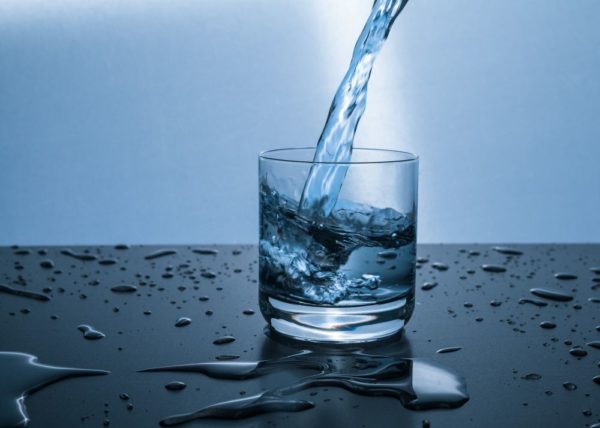
And you will still have fun when going out, you will still have a social life and you won’t feel miserable at all.
Quite the contrary: I was extremely surprised to find out how good it feels to spend an entire night out with friends and wake up the next morning with no headaches, no hangover and be able to stick to my healthy, fatty liver friendly diet.
I always got hungry after or during a night out and ended up drinking very unhealthy, greasy, bad-for-you food as a results.
You will see for yourself that it’s actually a lot easier than you think to stop drinking alcohol and your life will not be affected at all!
Can’t you drink alcohol in moderation if you have a fatty liver disease?

As we have already discussed – NO, you shouldn’t drink at all if you have a fatty liver disease. Not even a sip!
I know there are people, including doctors, who say that a glass of wine here and there won’t be the end of the world. But others say that it is.
We end up lying to ourselves that we do it for the health benefits (since drinking a glass of wine, for example, has been associated with improved health).
Well, guess what? Even if it’s a risk vs. reward kind of thing, the risk is too big in this case.
I always quote what my doctor told me in regards to drinking, even with moderation, if you have a fatty liver:
Let’s say you have that glass of wine every now and then. Let’s say that the people who claim it’s not that bad are correct. Let’s say nothing will happen. All is good.
But what if they’re wrong?
What if that glass of wine you have now and then turns your fatty liver into something incurable that will eventually become your cause of death – 10, 20 years from now? Are you willing to take the chance?
Only you can answer that question. I answered mine and never touched alcohol since!
Are alcohol free drinks allowed with fatty liver?
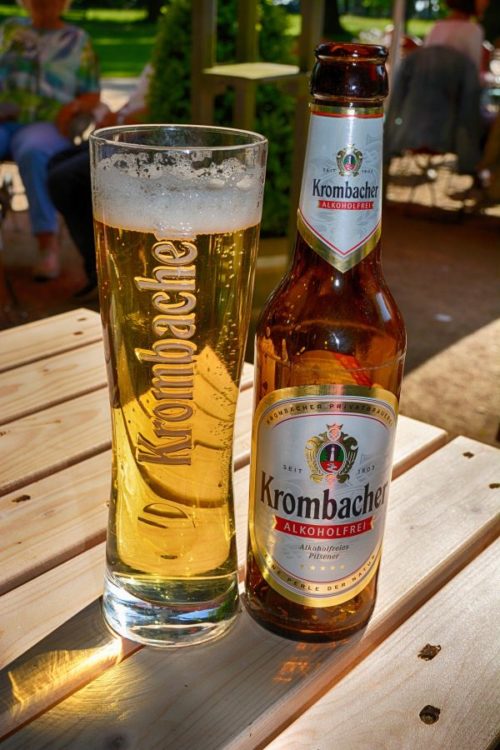
We have things like alcohol free beer as well as alcohol free wine… and the opinions are divided here regarding their safety when you have NAFLD.
I personally never drank any beer or wine (even with 0% alcohol) until it was confirmed, 1.5 years after being diagnosed, that I have reversed my fatty liver.
Afterwards, I decided that I could treat myself with a non-alcoholic beer every now and then (usually during the hot days of summer or when I go out with friends).
It hasn’t done any apparent harm to me, but I also try to drink no more than a maximum of 3 non alcoholic beers in any given week and I only have them on very rare occasions – so definitely not on a weekly basis!
I have also moved to alcohol free wine, and I wrote more in depth about it here. I only drink that on VERY rare occasions (maybe one or twice a year) and I only drank it AFTER reversing my fatty liver.
The reason why I drink alcohol free wine is that it is still processed and the chemicals used could do harm to my liver.
All in all, I would recommend anyone who is still trying to reverse their condition to stay away even from non-alcoholic beers or wines. These still have tons of carbs and lots of calories, so eat and drink as clean as possible until you reverse it.
After you reverse it, don’t start drinking alcohol again! Instead, if you really-really feel the need to, try some of the non-alcoholic options, but make sure that there is 0% alcohol (some drinks still have something like 0.5%) and only have them on very rare occasions.
That’s how I did it and it seems to have worked fine. It’s your choice here, but at least you know what it worked for me. You’ll see that never drinking again is not really the nightmare that it seems to be when you first hear it!
Conclusion
You should stop drinking any sort of alcohol after being diagnosed with a fatty liver disease. This is the only way to be 100% sure that you are not dealing extra damage to your liver and that you maximize your chances of recovery.
I stopped drinking as soon as I was diagnosed in 2014 and I haven’t taken a sip since.
It was not the end of the world, I still have friends, I still have fun – I actually feel much better now that I no longer drink alcohol and I am sure my liver is extremely happy about that also.
While it is true that drinking in moderation might not cause a lot of harm, the risks are too high. So, do like I did – and like so many doctors recommend – and stop drinking alcohol after being diagnosed with a fatty liver disease.

I was diagnosed with a fatty liver back in 2014 and managed to reverse it by mid-2015. Since then, I’ve been studying it, continuously updating my knowledge with the latest scientific findings and practical approaches to give others the help they need to reverse their condition.
My approach to managing fatty liver is holistic, balancing scientifically-backed information with real-life, practical advice based on personal, direct experience.
I am also the admin of the Fatty Liver Support Group on Facebook and the Fatty Liver Subreddit.

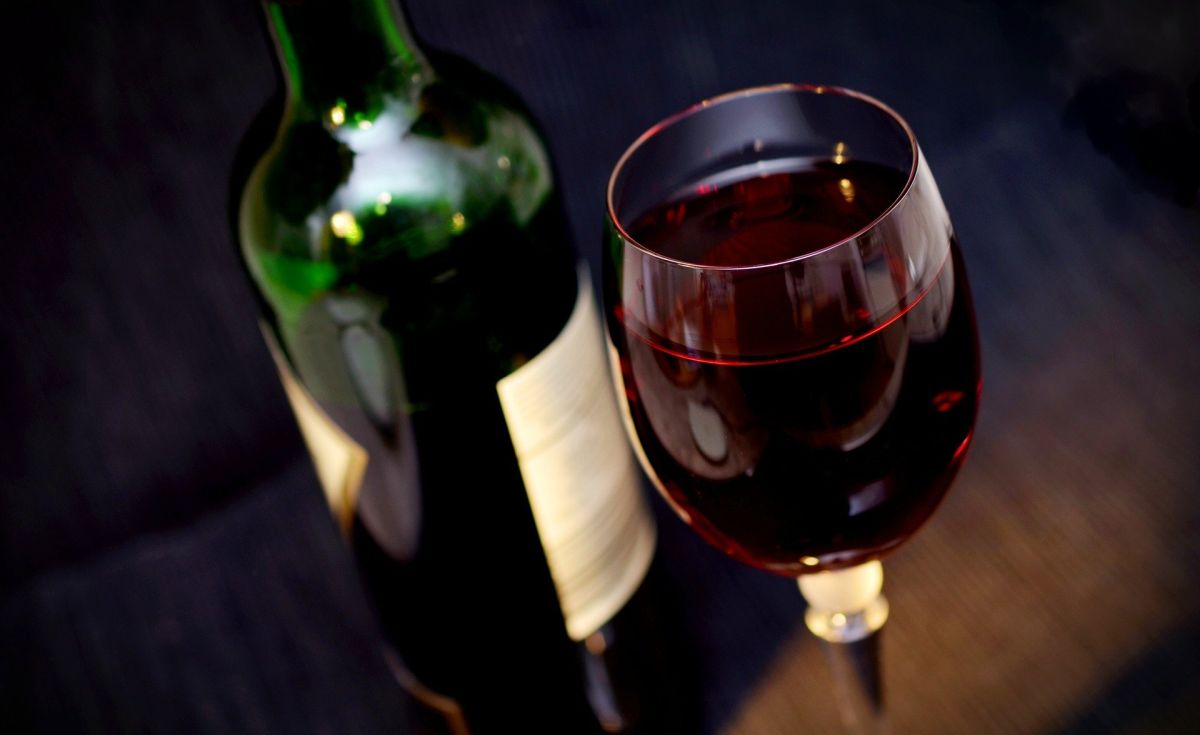
My lips gets so dry after consuming alcohol
My friends told me that I’m having a fatty liver. But I only drink once in 3-4 months. And I’m having overweight.
The only way to know if you have a fatty liver or not is by doing an ultrasound. Anything else is just guessing it…
I have a fatty liver, so have to give up drinking, so to help me through this stage Im drinking 00 wine, is this OK? ,as it helps me get through, as I’m just at the beginning of my journey, and want to stay safe and away from it all together, and eat more healthy
Sue, not really sure if 00 wine is no-alcohol wine or something else. If it is the former, it can be considered safer to drink than one with alcohol, but just as a transition phase. You will have to give it up completely and only have it occasionally (non-alcholic one I mean, as the one with alcohol should be always avoided).
Agreed! That’s it for me. I was a huge social drinker throughout my twenties and thirties, but I lost interest in my forties and mainly just kept wine around just because it seems to be the thing for stressed out moms to do (lol), but I barely consumed it. I often wonder if it was my body’s way of being smart and letting me know my liver needed a break! Who knows, because our bodies are very intelligent in their own way, if we would only listen.
It will be weird when I’m in social situations again (especially as I find that many of my friends seem to have been drinking MORE due to this whole COVID social distancing and the stress associated with it all), but I will just be honest and let them know I plan to be around for a while!
Very well said, Jennifer! I really agree that our bodies send us signals that we, unfortunately, tend to ignore. For weeks before being diagnosed, my body was asking for soups and vegetables (which was not something I was having a lot of back then), but I was forcing myself to eat the bad stuff that I had been eating then. Lesson learned though!
What about this study by a group of Korean doctors whose research “might be” suggestive that moderate drinking is indeed good for NAFLD? To wit:
Abstract
Whether moderate alcohol intake is beneficial remains an unsolved issue. Recent studies have suggested that moderate alcohol consumption is associated with beneficial effects related to the prevention of cardiovascular diseases. Moderate alcohol consumption leads to a higher risk of hepatocellular carcinoma in patients with chronic viral liver diseases. However, the effects of moderate alcohol intake in patients with nonalcoholic fatty liver disease are unclear. In this review, we analyzed, from various perspectives, the effect of moderate alcohol consumption in patients with nonalcoholic fatty liver disease. We reviewed four cohort studies and seven cross-sectional studies. The results showed that moderate alcohol consumption was negatively related to the incidence of nonalcoholic steatohepatitis and liver fibrosis. However, moderate alcohol consumption was positively associated with the incidence of hepatocellular carcinoma in patients with nonalcoholic fatty liver disease. The results of the analysis of the relationship between moderate alcohol consumption and the levels of triglycerides, total cholesterol, high-density lipoprotein, and hypertension were diverse. More clinical data are needed to draw a conclusion about the effects of moderate alcohol consumption in patients with nonalcoholic fatty liver disease.
Review Gut Liver
. 2019 May 15;13(3):308-314. doi: 10.5009/gnl18175.
Effects of Moderate Alcohol Drinking in Patients with Nonalcoholic Fatty Liver Disease
Inbeom Kwon, Dae Won Jun, Jin-Hwa Moon
PMID: 30400736 PMCID: PMC6529167 DOI: 10.5009/gnl18175
Nowhere in the quoted study does it say that moderate alcohol drinking could be considered safe for fatty liver. Their findings that there’s basically no proof that alcohol can lead to fatty liver, but once you have it, moderate drinking is related to increased risks of cancer.
Quoting from the study you mentioned: “moderate alcohol consumption was positively associated with the incidence of hepatocellular carcinoma in patients with nonalcoholic fatty liver disease.” So absolutely no alcohol after being diagnosed!
I must be the exception to the rule. I am in my 70s, have been a heavy drinker for half a century.
Yes, my first fibroscan 3 years ago showed Stage III, the next one was down to Stage II and this year’s results have me at Stage One, with zero scarring of the liver… all while I still consume a half dozen whiskey and plain water drinks almost every day. My fatty liver improved because I gave up soda, pizza and burgers.
That was a risk you were willing to take. I am happy it turned out good in your case, but for most it wouldn’t be the same.